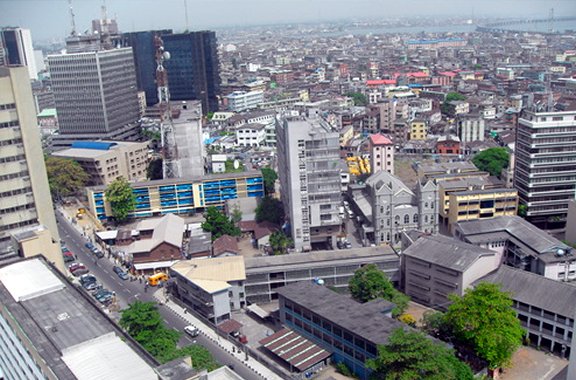
The Financial Times (FT) has compiled a list of the fastest-growing companies in Africa, which includes twenty-one companies from Nigeria that are making their entrepreneurial efforts count against all odds.
Taking into account the COVID-19 pandemic and highlighting the companies that successfully adapted to the resulting challenges, the FT’s ranking revealed that Nigeria, with 24 successful companies, has the second-highest number of successful companies after South Africa. Kenya ranked third with nine firms.
According to the Financial Times, the countries with the highest representations are also the markets that have attracted the most venture capital and where unicorns and would-be unicorns have proliferated.
As required by the Financial Times and the research firm Statista, successful businesses were ranked by their compound annual growth rate (CAGR) in revenue between 2017 and 2020.
The criteria included that the company’s 2017 revenue must be at least $100,000 and its 2020 revenue must be at least $1.5 million. Additionally, the company’s headquarters must be in one of the African countries and it cannot be a subsidiary or branch office.
AFEX Commodities Exchange, Zedcrest Group, Starsight Energy, Kawai Technologies, West African Soy Industries Limited, Commercio Partners, Northern Nigerian Flour Mills (NNFM), Alpha Morgan Capital Managers, WACOT Rice, Field Intelligence, and Tripple Gee & Company are the successful Nigerian companies.
FoodCo Nigeria, Global Accelerex, Prestige Assurance, Julius Berger Nigeria, Genesis Food Nigeria, Courteville Business Solutions, RT Briscoe Nigeria, Mutual Benefits Assurance, United Capital, and HIS Netherlands Holdco BV are among the others.
On the Nigerian Exchange Limited, there are six of the most successful Nigerian companies.
“It is a significant accomplishment that acknowledges our efforts over the past eight years. Ayodeji Balogun, CEO of AFEX Commodities, stated that despite the challenges posed by the global pandemic over the past two years, the company has worked tirelessly to improve Africa’s commodity market.
Further research revealed that AFEX Commodities topped the Nigerian list, with an average growth of 4,289.7 percent between 2017 and 2020, and ranked third in Africa. With a growth rate of 1,481.7 percent, Zedcrest Group ranked second in Nigeria and fifth in Africa.
“It is an honor to be included on the inaugural FT Africa’s Fastest-Growing Companies list,” said Zedcrest Group’s Group Managing Director Adedayo Amzat. It is a direct reflection of our leadership team, and I couldn’t be more proud of our group. In the past few years, we’ve had the good fortune to diversify our business within the financial sector, and we’ll continue to evaluate opportunities in other markets as part of our future growth strategy.”
He reaffirmed the company’s dedication to constructing interconnected financial solutions throughout Africa through technological innovation and adherence to global best practices.
Starsight Energy’s growth of 1,154.4 percent placed it sixth in Africa. It was followed by Kawai Technologies, which experienced a growth rate of 535.6 percent during the same time frame. West African Soy Industries, a company in the nation’s agricultural sector, experienced growth of 507,6%.
Commercio Partners, NNFM, Alpha Morgan, WACOT Rice, Field Intelligence, and Tripple Gee & Co. all reported revenue increases ranging from 170.1 percent to 232.3 percent. The growth of HIS Netherlands Holdco BV, FoodCo Nigeria, Global Accelerex, and Prestige Assurance ranged between 80 and 160 percent.
Julius Berger, a construction giant in Nigeria, increased its revenue by 70,3 percent during the period. Genesis Food, 54 percent; Courtville, 50.8 percent; Briscoe, 48 percent; Mutual Benefits, 45.4 percent, and United Capital, 44.3 percent.
According to the British newspaper, some companies are absent from the list due to factors such as private companies refusing to disclose their revenue figures. The survey required a chief executive officer or another senior official to attest to revenue figures.
Commercio Partners, NNFM, Alpha Morgan, WACOT Rice, Field Intelligence, and Tripple Gee & Co. all reported revenue increases ranging from 170.1 percent to 232.3 percent. The growth of HIS Netherlands Holdco BV, FoodCo Nigeria, Global Accelerex, and Prestige Assurance ranged between 80 and 160 percent.
Julius Berger, a construction giant in Nigeria, increased its revenue by 70,3 percent during the period. 54% for Genesis Food; 50.8% for Courtville; 48.2% for Briscoe; 45.4% for Mutual Benefits; and 44.3% for United Capital.
According to the British newspaper, some companies are absent from the list due to factors such as private companies refusing to disclose their revenue figures. The survey required a chief executive officer or another senior official to attest to revenue figures.
Read also: Nigeria’s largest downstream firms increase profits by 57% despite dirty fuel scandal
The Financial Times announced the list of successful African companies by stating, “From digitizing informal trade to fintech and mining, the inaugural list reflects continent-wide trends.”
Following the application phase, Statista examined the officially reported revenue data of approximately 900 companies in Africa, and prominent companies that met the inclusion criteria were added to the list, according to the report.
It was stated that the data was gathered using official sources, such as publicly accessible earnings presentations, investor relations websites, and annual reports.
According to the Financial Times, the inaugural annual ranking of Africa’s fastest-growing companies offers a snapshot of the corporate landscape on a continent where technology and support-service companies have had to adapt to a drastically altered environment.
According to the report, operating within the stringent restrictions imposed by numerous African governments to combat COVID-19 was the most significant of the recent obstacles.
It stated, “Finally, outside of South Africa and parts of North Africa, the health impact has been less severe than many had anticipated.” However, the economic consequences of lockdown have been devastating, particularly in dense urban areas where many people lived hand to mouth.
“Many of the fastest-growing companies, particularly in the fintech industry, are those seeking to serve Africa’s unbanked population or previously underserved or neglected markets. As a result of unmet needs and rising aspirations, the health and education industries, for example, offer the most growth potential.
- Tags: Financial Times, Nigeria




